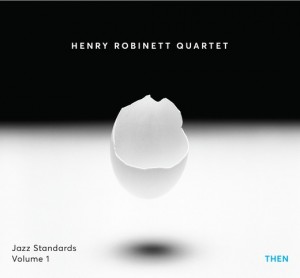Guitarist and composer David Gilmore (not to be mixed with David Gilmour from Pink Floyd) has released a new album on Criss Cross Jazz called “From Here to Here”. The album features eight original compositions from David Gilmore plus two covers.
I have met David Gilmore some years ago in Langnau where he taught the guitar class during the Langnau Jazz Festival. He enjoyed teaching, we had a great time with him and he also showed his mastery in the concerts and the jam sessions.
The album was recorded in 2018 and the line-up includes E.J. Strickland on drums whom I also met at that time in Langnau.
The complete line-up is:
- David Gilmore – guitar
- Luis Perdomo – piano
- Brad Jones- bass
- E.J. Strickland – drums
The album starts with “Focus Pocus”, a very energetic composition by David Gilmore. After a great guitar solo E.J. Stricklands on drums and Luis Perdomo on piano get their chance to shine. Excellent start into the album and it makes appetite for more music from this band.
“Cyclic Episode” by Sam Rivers is the next song. A nice composition with interesting changes and great dynamic support by drums and bass during the guitar and piano solo. Trading 8 bars of guitar solo with 8 bars drums solo completes the tune in best jam style.
The album continues with “Metaverse”, a song where the harmonies remind me of Miles Davis’ music from his electric phase in the 1980′s. The guitar comes distorted, the melody is very artistic and the groove moves between even and swing. The solo is a dialog between guitar and piano. A great tune.
In sharp contrast is “Child of Time” where David Gilmore plays on a nylon guitar. This beautiful ballad features David Gilmore on guitar and Luis Perdomo on piano.
The band returns to an electric sound with “When and Then”. The precision of this band is amazing, the melody is played in unison and all the little breaks just fit perfectly. We hear again two excellent solos by guitar and piano.
“Innerlude” is the next song. This soft composition by David Gilmore starts very light and open and indulges itself in it’s harmonies.
The album continues with “Interplay” by Bill Evans. This jazz classics features Brad Jones on bass. His great solo is outperformed by an incredible guitar solo. Sound and style of this song keep the spirit of the original with Jim Hall on guitar. One of my highlights on the album.
“The Long Game” is the next song. Another very rhythmic composition that allows E.J. Strickland to set the course. Bass and piano provide the background in unison for the staccato melody played in unison by piano and guitar. Chapeau for Luis Perdomo for this outstanding performance.
The album continues with “Free Radicals”. The fast latin groove is the foundation for extensive solos by piano, distorted guitar and drums. After an interlude Brad Jones gets his chance for a bass solo.
“Libation” is the last song on the album. The guitar starts the groove of the song followed by an open and melodic part. Solos by guitar, piano and bass round up this modern jazz composition.
“From Here to Here” is a great album from one of the best guitar players on the scene today matched by a rhythm section of New York first-callers. Contemporary jazz compositions and excellent solos presented with a lot of energy and enthusiasm are the main characteristics of this album.
The closing words come from David Gilmore:
“I wanted to get a smaller working group in the studio to facilitate touring. My very first record Ritualism was centered around a guitar-piano-bass-drums quartet; I wanted to return to that format (a) because I like it, and (b) because of logistics.”
So let’s hope we see him touring with this music and hopefully also with these outstanding musicians.
More information about David Gilmore and upcoming shows are found on his website:
http://www.davidgilmore.net/
And finally the complete album on Spotify:



